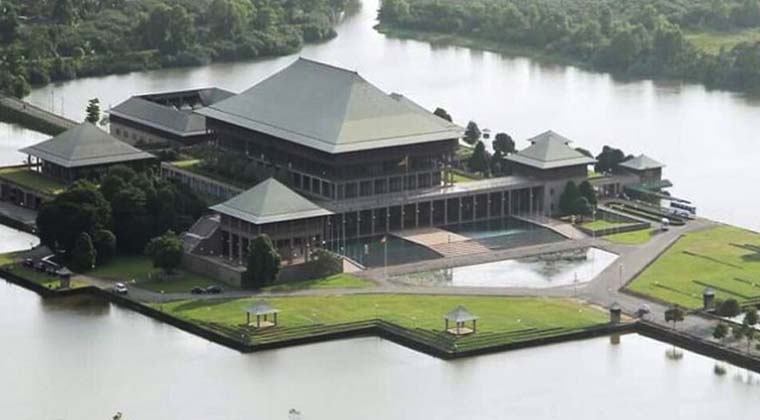The Parliament of Sri Lanka stands as the cornerstone of the country’s democratic framework, representing the will of the people and serving as the primary institution for lawmaking and governance. Since its establishment, the Parliament has undergone significant transformations, adapting to political, social, and economic changes while maintaining its role as the heart of Sri Lanka’s democratic system.
A Brief History of the Sri Lankan Parliament
The Sri Lankan Parliament traces its origins to the State Council of Ceylon, established in 1931 during British colonial rule. It transitioned into the House of Representatives in 1947 with the advent of the Soulbury Constitution, coinciding with Sri Lanka’s (then Ceylon’s) path to independence in 1948. In 1972, when the country became a republic, the National State Assembly replaced the House of Representatives, and in 1978, the current parliamentary system was established under the Second Republican Constitution.
The Parliament consists of 225 members, elected by proportional representation. Members serve a five-year term unless dissolved earlier by the president. As the central legislative body, it holds the power to draft, debate, and pass laws, oversee the executive, and manage the national budget.
The Culture of the Sri Lankan Parliament
The culture of the Sri Lankan Parliament is shaped by the country’s unique political dynamics, cultural heritage, and democratic traditions. Over the years, parliamentary debates have become a mix of rigorous policy discussions, passionate speeches, and, at times, heated arguments.
Sri Lanka’s Parliament is often seen as a microcosm of its diverse society, with members representing different ethnicities, religions, and regions. This diversity ensures that the voices of the Sinhala, Tamil, Muslim, and other communities are heard, making the Parliament a platform for dialogue and negotiation.
While parliamentary sessions are formal events with strict rules of procedure, they are also characterized by moments of spontaneity and emotion. Members frequently use allegory, historical references, and even humor to make their points, reflecting the vibrant political culture of the nation.
Ethics and Conduct for Members
Ethical conduct is a cornerstone of parliamentary democracy, and Sri Lankan Members of Parliament (MPs) are expected to adhere to a code of ethics that ensures accountability, integrity, and respect for democratic principles.
Key Ethical Expectations:
Transparency and Honesty: MPs are expected to declare their financial interests and avoid conflicts of interest in their roles as lawmakers.
Respect for the House: Maintaining decorum during parliamentary proceedings is a fundamental requirement. This includes refraining from using abusive language or engaging in physical altercations, both of which have occasionally marred the Parliament’s reputation.
Commitment to Public Service: MPs are elected to serve the people and are expected to prioritize national interests over personal or party interests.
Nonpartisan Cooperation: While political rivalry is inherent, MPs are encouraged to work collaboratively, especially on issues of national importance.
The Parliament has established a Committee on Ethics and Privileges to address violations of parliamentary conduct. However, public criticism has occasionally been directed at the perceived lack of enforcement of these ethical standards, highlighting the need for continuous vigilance and reform.
Important Features of the Sri Lankan Parliament
Proportional Representation System:
Sri Lanka’s unique proportional representation system aims to ensure that the composition of Parliament reflects the diversity of voter preferences. This system allows smaller parties and minority groups to gain representation, fostering inclusivity.
Committee System:
Parliamentary committees play a vital role in scrutinizing legislation, budgets, and government policies. Key committees include the Committee on Public Accounts (COPA) and the Committee on Public Enterprises (COPE), which are tasked with ensuring financial accountability.
Role of the Speaker:
The Speaker of Parliament acts as an impartial moderator, ensuring that debates are conducted fairly and that parliamentary procedures are followed. The Speaker is also responsible for maintaining order and upholding the dignity of the House.
Debating Tradition:
The Parliament is renowned for its robust debating tradition. While disagreements are common, these debates often highlight critical national issues, from economic policies to social justice. However, the challenge remains to ensure that debates are constructive and not merely partisan confrontations.
Transparency and Public Engagement:
Efforts have been made to make parliamentary proceedings more transparent, including live broadcasts of sessions and public access to records. These measures aim to foster greater accountability and encourage civic participation.
Challenges and Reforms
Despite its significance, the Sri Lankan Parliament faces several challenges. Public trust in MPs has occasionally been undermined by allegations of corruption, absenteeism, and unethical behavior. There is also criticism regarding the effectiveness of the proportional representation system, with some arguing that it leads to fragmented governance and weak accountability.
Reforms aimed at strengthening parliamentary ethics, enhancing the role of committees, and improving public engagement are essential to ensure that the Parliament continues to serve as a credible and effective institution.

